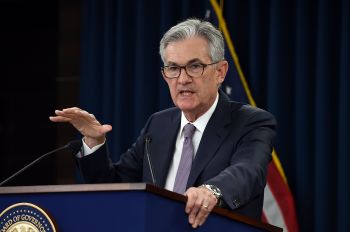Bailout saved banks, but could allow others to take risks
TEXT OF STORY
Kai Ryssdal: The sheer volume of documents the Federal Reserve released yesterday about its emergency lending programs doesn’t quite approach the Wikileaks total of 250,000 secret cables. But for business journalists, the Fed’s data dump is quite the goldmine. Trillions of taxpayer dollars borrowed. More than 21,000 transactions. And a who’s who of big Wall Street banks that went to the Fed, hat in hand: Citigroup, Bear Stearns, even mighty Goldman Sachs. And others — mutual funds, hedge funds. Non-banks as well: Harley-Davidson and General Electric, to name just two.
All the cash did help dodge the bigger crisis, but knowing who got how much does raise anew the question many were asking at the time: how big is too big to fail?
Marketplace’s Janet Babin reports.
Janet Babin: If you’re looking for a takeaway, a meaning in all these Fed documents? University of Houston finance professor Craig Pirrong has got one for you.
Craig Pirrong: Just sort of confirms how scary things were.
The Fed’s confidential documents reveal that Citigroup, Morgan Stanley and Merrill Lynch got the most emergency cash. The biggest shocker was Goldman Sachs. At the time, the investment bank insisted it had plenty of cash. But records show it was sixth on the borrow list.
Dick Bove is a bank analyst at Rockdale Securities.
Dick Bove: Goldman Sachs may not have ‘fessed up properly. It does look as if the Fed had not assisted Goldman Sachs, Goldman Sachs would have gone the route of Lehman and Bear Stearns.
That would be the route to collapse. Bove says more firms might have headed down that road, if the Fed hadn’t unleashed trillions in emergency loans.
Bove: It saved the financial system. I have no idea why people think that’s bad.
But some continue to think the bailout is bad: that it greases the wheels for companies to become too big to fail. Boston University Law School professor Cornelius Hurley says the bailout encourages companies to take future risks.
Cornelius Hurley: Those that absolutely needed it, the Goldmans, the Citis, the Wells — they are ever bit as risky now as they were then.
And Hurley says the largest banks are even bigger than they were before the crisis. Thanks to the federal government’s help, some are now more profitable than ever too.
In New York, I’m Janet Babin for Marketplace.
There’s a lot happening in the world. Through it all, Marketplace is here for you.
You rely on Marketplace to break down the world’s events and tell you how it affects you in a fact-based, approachable way. We rely on your financial support to keep making that possible.
Your donation today powers the independent journalism that you rely on. For just $5/month, you can help sustain Marketplace so we can keep reporting on the things that matter to you.

















